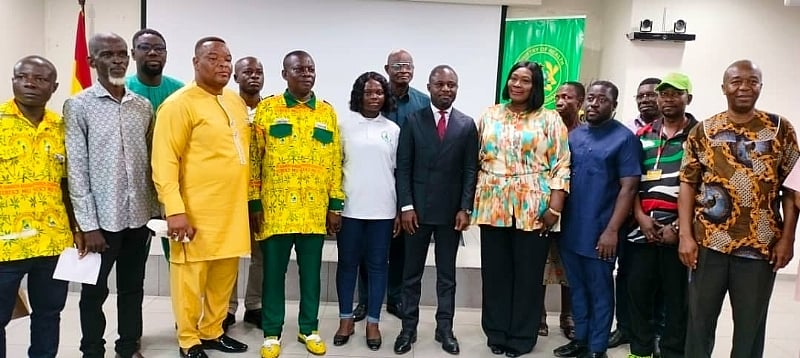The Ghana Association of Women and Youth in Herbal Medicine Practice (GAWYHMP) recently engaged in a productive dialogue with the Minister of Health, Hon. Kwabena Mintah Akandoh, to advocate for greater recognition and support for traditional medicine within Ghana’s healthcare system. The meeting served as a platform for the Association to underscore the significant contributions of traditional medicine and to address the challenges hindering its full integration and development. A central theme of the discussion revolved around the potential of traditional medicine to reduce Ghana’s reliance on imported pharmaceuticals, promoting both health sovereignty and economic growth. The Association emphasized the importance of wider distribution of traditional medicines within hospitals, a move they believe would not only improve access for patients but also contribute to a more balanced and culturally relevant healthcare landscape.
The GAWYHMP further highlighted the economic potential inherent in the traditional medicine sector. They argued that with appropriate investment and support, the cultivation, processing, and distribution of herbal medicines could create jobs, generate revenue, and contribute significantly to Ghana’s economic diversification. Specifically, the Association called for the inclusion of more herbal units in the new hospitals being constructed under the Agenda 111 project. This strategic integration, they argued, would signal a concrete commitment to traditional medicine and facilitate its mainstreaming within the broader healthcare system. Furthermore, it would provide a structured framework for collaboration between traditional healers and conventional medical practitioners, fostering a more holistic and integrated approach to healthcare delivery.
Hon. Kwabena Mintah Akandoh expressed his strong support for the advancement of traditional medicine and assured the Association of the government’s commitment to fostering its growth and development. He referenced the inclusion of provisions for traditional medicine in the President’s manifesto, signaling a high-level recognition of its importance. The Minister encouraged the Association to actively seek private investment in the sector, emphasizing that this would not only alleviate the financial burden on the government but also contribute to the long-term sustainability of traditional medicine practice. He acknowledged the need for a collaborative approach, involving both public and private stakeholders, to effectively harness the full potential of traditional medicine and integrate it seamlessly into the national healthcare framework.
The meeting, attended by a diverse representation of herbal associations including the Ghana Christian Herbal Doctors Association (GCHDA), Sankofa Traditional Herbal Medicine Practitioners Association of Ghana (STHMPAG), Ahaban Nnouro Nkabom Kuo (ANNK), Ghana Association of Faith Healers & TBA (GAFH-TBA), and the Ghana Association of Medical Herbalists (GAMH), underscored the collective desire for greater recognition and integration of traditional medicine. The presence of these various groups highlighted the breadth and depth of traditional medicine practice in Ghana, encompassing a range of philosophies, practices, and approaches. This collaborative engagement signifies a growing awareness of the need for a unified voice in advocating for the interests of traditional medicine practitioners and ensuring the preservation and promotion of this valuable aspect of Ghanaian healthcare heritage.
The discussions between the GAWYHMP and the Minister of Health represent a crucial step towards strengthening the role of traditional medicine in Ghana’s healthcare system. The meeting provided a platform for open dialogue, allowing for the identification of key challenges and opportunities related to the development and integration of traditional medicine. The commitment expressed by the Minister, coupled with the proactive engagement of various herbal associations, suggests a growing momentum towards a more inclusive and comprehensive approach to healthcare in Ghana. This movement recognizes the potential of traditional medicine to complement conventional practices, offering a more holistic and culturally relevant approach to addressing the health needs of the Ghanaian population.
Ultimately, the successful integration of traditional medicine into Ghana’s healthcare system will require a multi-pronged approach. This includes continued advocacy by organizations like the GAWYHMP, supportive policies and regulations from the government, investment in research and development, standardization of practices, and ongoing dialogue between traditional healers and conventional medical practitioners. By fostering collaboration and addressing the existing challenges, Ghana can harness the full potential of traditional medicine, contributing to a more robust, resilient, and culturally relevant healthcare system that effectively serves the needs of all its citizens. This approach recognizes the inherent value of traditional medical knowledge and practices, ensuring their preservation and integration into a modern healthcare framework.














